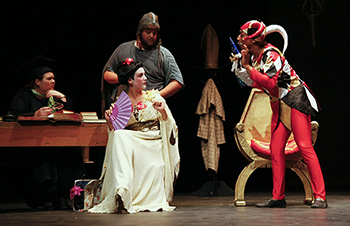Latest News Archive
Please select Category, Year, and then Month to display items
23 November 2022
|
Story André Damons
![]()
Prof Motlalepula Matsabisa, Professor and Director of Pharmacology, will play host to the various stakeholders to network and share knowledge on current developments in indigenous knowledge research and product development, biodiversity, innovation, and commercialisation of the IK-based research products. The Indigenous Knowledge System (IKS) for Health unit in the Department of Pharmacology within the UFS Faculty of Health Sciences was last year awarded an annual Technology Innovation Agency Platform (TIA) grant of R17 million for the next five years.
The research and teaching programme in the School of Clinical Medicine has since been rebranded and is now known as the African Medicines Innovation and Technology Development Platform (AMITD), which will strive to respond to community health needs and address industry research needs and challenges.
The indaba will showcase progress made by TIA and other entities in enriching the development and commercialisation of IK-based innovations. It will take place from 24 to 25 November 2022 in the Equitas Senate Hall at the UFS.
Prof Matsabisa is the chairperson of the World Health Organisation’s (WHO) Regional Expert Advisory Committee on Traditional Medicines for COVID-19. He is also a visiting professor at the Beijing University of Chinese Medicine (BUCM) in Beijing, China, and the Deputy President of the South African Society for Basic and Clinical Pharmacology.

Drama students awarded National Arts Council bursaries
2016-05-04
 |
The National Arts Council (NAC) has awarded R100 000 to 10 Drama students at the University of the Free State (UFS). Eight years after its establishment in 2005, the NAC has partnered our university in funding academically-deserving students needing assistance with tuition. To date, our undergraduate students have benefitted from more than R800 000.
Prof Nico Luwes, Head of the Department of Drama and Theatre Arts, who applies to the NAC at the end of each year on behalf of students, welcomes the funds: “Quite a lot of our students would not have been able to complete their studies without assistance from the bursary scheme.”
As a result of this financial injection, South African schools also gain. “Some students then enrol for a higher education diploma, and they then teach Arts and Culture at schools. Hence, there is a whole new generation of Arts and Culture teachers who are now entering the school system,” said Prof Luwes.
Mbuyiselo Nqodi, a second-year BA Drama and Theatre Arts student, would not have been able to enrol at the university in 2015, had it not been for the NAC. “Without the bursary, I would not have been admitted into the university. It helped a lot because R10 000 can go a long way.”
Pursuing its mandate to support and develop South Africa’s arts, culture and heritage sector, the NAC awarded 117 bursaries to arts students and tertiary institutions for the year. A total of R5 million has been allocated for 2016, a 10% increase on the previous financial year.
According to the NAC Chief Executive Officer, Rosemary Mangope, one of the aims of the NAC is to provide support to students who will contribute to the arts and culture industry in a meaningful and sustainable manner.